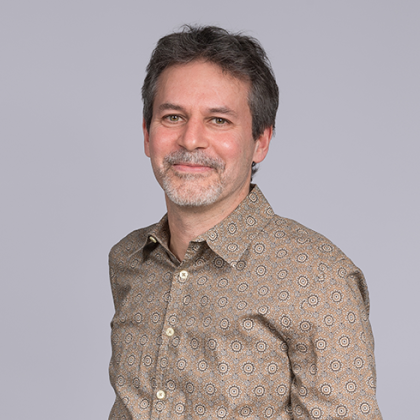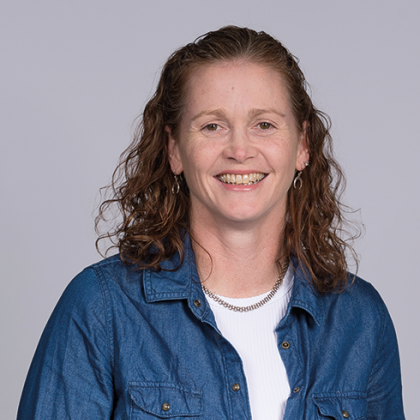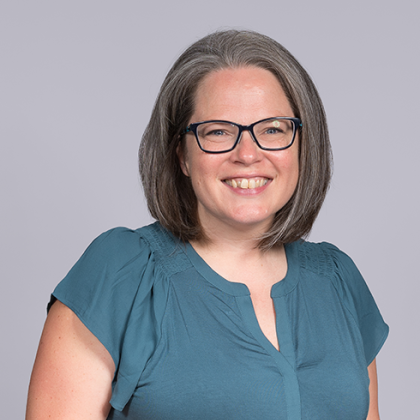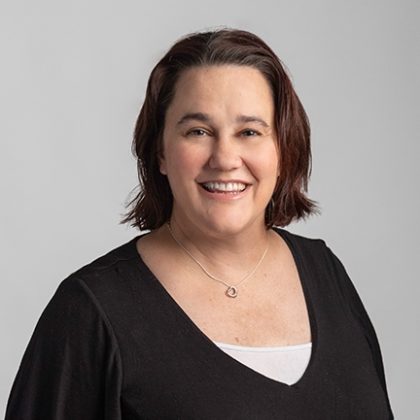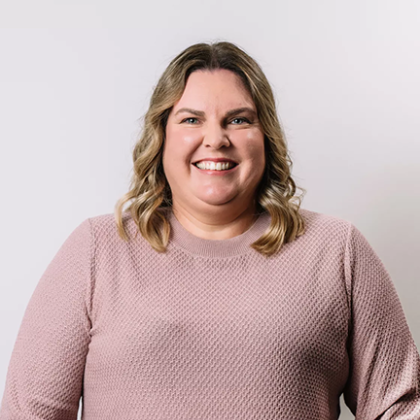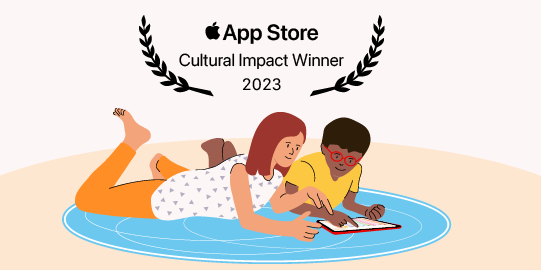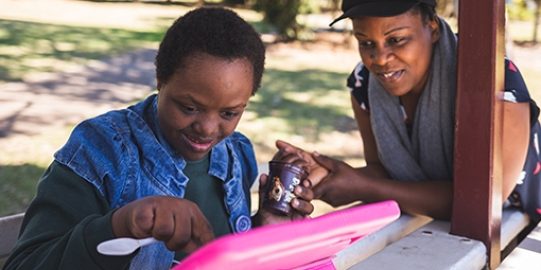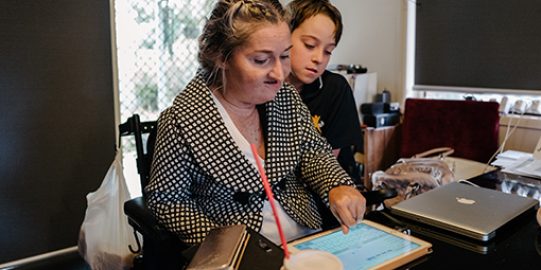Our sessions at AGOSCI 2025
Pre-conference workshop
Embedding robust vocabulary instruction into classroom routines
Presenters: Erin
Date: Wednesday, March 12 | Time: 9:00 AM - 4:00 PM | Location: Gilbert Suite
We know that vocabulary instruction for AAC learners is essential. AAC users need a rich vocabulary to organize their thinking, express their ideas, and understand others. Reading and writing are fueled by knowledge of words, yet AAC learners are high-risk for impoverished experience with language. Vocabulary instruction is essential to help these students learn about the world through all the subjects taught in the curriculum.
But where do we start with AAC learners? Which words to prioritize? How do we teach core versus fringe words? How do we ignite a student’s curiosity and engagement with the magic of language? And, perhaps most daunting, how do we support teachers to incorporate daily vocabulary instructional routines in busy classrooms with lots of competing priorities?
This workshop will give you a practical toolkit to enrich your own vocabulary instruction. Better yet, it will help you build capacity and lighten the load for colleagues or educators you support. We will dive into the instructional routines, strategies and technologies that best help our students expand their receptive and expressive vocabularies and explore language in new ways. You will leave with new ideas and quality prepared resources, ready to implement in classrooms or therapy rooms.
Supported decision-making for students with CCN
Presenters: Erin
Date: Thursday, March 13 | Time: 11:20 AM - 12:40 PM | Location: Gilbert Suite
Families, clinicians, and school teams often make decisions for our emergent students instead of with them. These students leave school without meaningful experience participating in the most important decisions about their lives, such as where they will live, who they will live with, and how they will spend their days. The more emergent a student's skills, the more explicit support, instruction, and planning they need to participate in decisions.
Teaching students to participate in decisions is an essential life skill. At minimum, it ensures they can evaluate their adult services and advocate for their needs. At best, it ensures they are equipped to be deeply understood and live their best life.
This hands-on session will explore a range of tools and strategies that can be used all across the lifespan. We will emphasize the role of observation, multiple perspectives, visual supports, wait time, open-ended questions, and personalized and predictable routines. You will experience how these tools and strategies help us elicit and gather information about what is most important to our students, what is working and not working for them, and what changes they want to see. Finally, we will explore free resources to document what we learn so that communication partners can respond consistently and respectfully to how the student participates in decisions.
These tools and strategies will be particularly helpful to anyone with transition-age students, but no student is too young or too emergent to increase their involvement in decisions!
What does it mean to know a word? Vocabulary instruction for AAC learners
Presenters: Erin and Shannon
Date: Thursday, March 13 | Time: 1:40 PM - 3:00 PM | Location: Gilbert Suite
Our field has often reduced vocabulary instruction to getting an AAC user to select the button for a word. But what does it mean to truly know a word? How do we build both receptive and expressive knowledge of words? How can an AAC system support rich word learning? And how can we support teachers and clinicians to implement effective, engaging vocabulary instructional routines? Join us in this session as we explore all these questions!
In this interactive session, we’ll first explore insights from research into how children learn new words, concepts and categories. We will extend this research to children learning language through the unique properties of a symbol-based AAC system. Next, we’ll dive into fun, engaging routines designed specifically to help AAC learners build their knowledge of words. Finally, we’ll demonstrate a simple daily routine for explicit instruction in word AAC vocabulary and symbol recognition.
Whether you’re working in the classroom, therapy room, or at home, you’ll leave this session with practical, ready-to-use ideas that can make an immediate impact on your students’ communication skills. Come help us explore how to give AAC learners true access to the vocabulary they need to thrive!
Vocabulary in Action: Practical ideas to support AAC learners in the classroom and beyond
Presenters: Shannon
Date: Thursday, March 13 | Time: 3:30 PM - 3:50 PM | Location: Gilbert Suite
Learning vocabulary is essential for AAC users, as it helps them organise their thoughts, express ideas, and better understand others. For AAC learners, a strong vocabulary also forms the foundation for reading and writing.But building this vocabulary doesn’t happen on its own. Teachers and therapists need effective, engaging strategies to make vocabulary instruction a daily part of their classrooms and therapy sessions. This can be a challenge, and many educators need support to implement routines that truly work.
In this interactive session, we’ll dive into practical, hands-on routines designed specifically to help AAC learners build their vocabulary. We’ll explore fun and engaging ways to teach new words, helping students not only learn language but also use it in their everyday lives. You’ll also learn how to support educators in building capacity so that vocabulary instruction becomes a natural, ongoing part of their teaching practice.
Whether you’re working in the classroom, therapy room, or at home, you’ll leave this session with practical, ready-to-use ideas that can make an immediate impact on your students’ communication skills. Let’s work together to give AAC learners the vocabulary they need to thrive!
Invested teaching: Communication in the Curriculum
Presenters: Emily Seoud, Michaela Coleman, and Amanda
Date: Thursday, March 13 | Time: 3:50 PM - 5:00 PM | Location: Gilbert Suite
Join us as we share how we do it - how we, as invested teachers, integrate AAC into our classrooms. Over five years ago, Mudgeeraba Special School on the Gold Coast, Queensland, prioritised AAC as a tool for communication and learning. Since then, as a school community we have worked to embed AAC throughout the school day. While teaching Version 9 of the Australian Curriculum, we have a strong focus on teaching the language of all key learning areas with various forms of AAC. Now we have teachers tell us, “I don’t know how to teach without AAC!”
As teachers, our core business is to teach language to our students. When we give our students the vocabulary to express their thoughts and ideas, students can participate meaningfully with the curriculum. They can also connect with their school community. Integrating AAC consistently through transparent planning for different stakeholders across various environments promotes positive learning outcomes for our students. AAC is such a powerful tool to teach language! Understanding the hidden language demands in the curriculum, and intentionally unpacking and teaching that language with AAC, provides so many learning opportunities for all students.
We are proud to be invested AAC teachers! We have embraced AAC in our classrooms and have seen the results. Join us as we discuss how we did it, share stories and examples, and learn about the benefits of AAC as a tool to teach language.
✨ Documentary screening and Q&A - This Is Not About Me
Presenters: Jordyn Zimmerman
Date: Thursday, March 13 | Time: 5:00 PM - 6:15 PM | Location: Gilbert Suite
Join us for a special screening of This Is Not About Me, a powerful documentary about the journey of Jordyn Zimmerman, a nonspeaking autistic advocate who fought hard against an unwilling educational system. Jordyn does not speak but has so much to say and communicates through her iPad using an AAC app. This documentary encourages us to challenge our assumptions and to look beyond our prejudices regarding people who cannot speak.
After the screening, participate in a live Q&A session with Jordyn herself. This is a chance to gain deeper insights into her experiences, challenges, and advocacy work for inclusive education and communication access. Discover more about the impact of AAC and the importance of supporting all forms of communication in this viewing and Q&A.
Similar students, different AAC outcomes: What explains Australia’s magic?
Presenters: David and Erin
Date: Friday, March 14 | Time: 10:30 AM - 11:30 AM | Location: Gilbert Suite
In this session we look at consent-based anonymous English language use data from over 25,000 Proloquo2Go users. These data reveal stark differences between Australia, the US, Canada, and the UK in terms of AAC language use and proficiency. We will together try to identify what is done differently in these countries and how this translates to these different language outcomes for students despite a similar student population. We will also take a peek at regional differences within Australia. Finally, we will consider what lessons we can draw to improve our daily AAC practice.
Measuring AAC User Linguistic Competence: A Novel Approach
Presenters: David and Erin
Date: Friday, March 14 | Time: 11:30 AM - 12:30 PM | Location: Gilbert Suite
This session explores how to measure linguistic competence for language produced with an AAC system. We analyzed anonymous language use data from over 30,000 symbol-supported and text-based AAC systems. We found that Mean Length of Utterance (MLU), the current go to method, is not very suitable for AAC. In this session we will present a number of alternative measures covering the syntactic, semantic, morphological, and phonological components of linguistic competence while respecting AAC user privacy. Join us to learn about robust new ways to measure linguistic competence that work equally well for emergent and advanced users.
Coaching for Confident Classrooms: Unlocking the Magic of AAC
Presenters: Shannon and Amanda
Date: Friday, March 14 | Time: 1:30 PM - 2:50 PM | Location: Gilbert Suite
As classrooms evolve with the introduction of AAC, teachers are taking on new and exciting roles. This shift, while rewarding, can also be a bit challenging. While we don't have a magic wand to help you teach communication, we do have tips, tricks, and practical ideas to help teachers build their confidence and fluency with AAC.
Join us for a fun and engaging session where we’ll explore how coaching can help teachers boost their communication partner skills and smoothly integrate AAC into their teaching. The impact of a teacher's skills, knowledge, and attitudes on the success of AAC is huge. With the right support and resources, teachers can become confident and skilled AAC practitioners.
In this interactive session, you'll discover how Speech Pathologists, AAC Coaches and teachers can collaborate, and through coaching, build essential skills.
Speech pathologists and AAC Coaches will learn how to coach teachers effectively, empowering them to support their students with AAC. Teachers will take away practical ideas and activities that they can immediately use in their classrooms.
Expect to walk away with a toolkit of practical examples, innovative ideas, and valuable resources that you can immediately apply.
AAC as a Tool for Feelings, Regulation and Problem Solving
Presenters: Amanda
Date: Friday, March 14 | Time: 3:10 PM - 4:10 PM | Location: Gilbert Suite
Often people who use AAC are only supported to express very basic feelings - happy, sad and maybe angry. How we feel is far more complex. In addition, sometimes these feelings are taught in a way that is ineffective and unhelpful. We need to do more for AAC users!
Why is this so important? We all need to be able to express how we feel. Expressing emotions and having these understood by the people around you, make us feel understood and heard. This increases the opportunities for connections. Additionally, when we can express our feelings, it helps us to start to discover and communicate what we need to feel better. Nonspeaking people need all of these opportunities and experiences.
So what can we do? In this workshop we will dive into new ideas and strategies for supporting emotions, regulation and problem solving for people who are nonspeaking.
AAC vs Visual Tools: Let’s compare strategies and focus on connection
Presenters: Shannon and Amanda
Date: Friday, March 14 | Time: 4:10 PM - 4:50 PM | Location: Gilbert Suite
Do you use both visual tools and AAC in your classroom, home or therapy centre? If you looked at them side by side, would you see their different values and functions?
In this interactive session we will put visual tools and comprehensive AAC devices head to head. We will compare and contrast them and put them through our connection versus compliance checklist.
So many visual tools play a role in supporting many learners but is important to put them under the microscope. We will explore where visual tools can go wrong, because while some visual tools are useful, some are less so.
For example, picture choice cards that are used for a child to make requests might help for a time, but they can also restrict language development if other AAC is not offered or considered.
We also see visual tools being used as behaviour management tools or positive behaviour supports.
In the worst case scenarios, students who are nonspeaking are given choice cards and behaviour supports but then not exposed to a robust, comprehensive AAC tool that will build language and support real engagement and communication.
We will share real and practical examples of tools and strategies that can harness the power of both visual tools and AAC, while avoiding the downfalls and traps.
Join us as we focus on connections over compliance.
Are we approaching AAC modelling all wrong? Lessons from early language development & motherese
Presenters: David and Erin
Date: Saturday, March 15 | Time: 10:30 AM - 12:30 PM | Location: Gilbert Suite
Aided language input, or modelling, has become the go-to intervention for teaching AAC. Communication partners are generally encouraged to adopt several modelling strategies, including emphasizing core words, modelling only key words, attributing meaning, verbal referencing, and modelling a slightly longer message than the user can produce. The goal is to replicate how speaking children learn language through receptive input. However, modelling AAC is difficult and most communication partners end up modelling very little. In this session, we will explore the role of language input to support comprehension for children learning language through AAC. We will evaluate how a variety of common modelling strategies align with the receptive input received by speaking children, and we will consider why partners often find it difficult to model AAC. Finally, we will propose changes to modelling practice based in the study of “motherese”, receptive language development, and the cognitive and developmental needs of both communication partners and AAC users.
Busting Myths: Regulation and AAC
Presenters: Jordyn Zimmerman
Date: Saturday, March 15 | Time: 1:30 PM - 2:30 PM | Location: Gilbert Suite
Whether you are an AAC user, family member or professional — this session is for you! When we receive sensory-motor feedback, it can often help frame our feelings, where our body is in space, and the steps needed for planned movement. Yet, what happens when that messaging isn’t clear? Join to challenge or clarify your beliefs around the intersection of sensory-motor regulation and communication access. Together we will think about the balance of the internal system and external experiences, leading us to explore how myths about behavior, motivation, and communication can impact implementation. Through this learning and discussion, we will work through practical ideas to enable access to AAC for those in our community.
AAC FUN should be done! AAC activities to engage ALL learners!
Presenters: Shannon and Amanda
Date: Saturday, March 15 | Time: 2:30 PM - 3:30 PM | Location: Gilbert Suite
Don't we all learn more when we're having fun? We believe that AAC users and communication partners learn best when things are meaningful and motivating. In this lively workshop, you'll learn by doing, so get ready to join in the fun! Bring along your AAC and get ready to play.
Engage in practical activities designed to build your communication partner skills. The best part? These activities can be taken back to your schools, homes, or clinics to use in many different ways. Perhaps you run a session in a staff meeting - these activities will be perfect for teachers to get hands on practice. Perhaps you need some new inspiration for your therapy sessions. Maybe you are running some group programs with AAC users. These AAC activities are designed to engage ALL learners!
This workshop is about making learning enjoyable and impactful. You'll dive into hands-on activities that enhance your skills and make you laugh. Whether you're new to Augmentative and Alternative Communication (AAC) or have years of experience, there's something for everyone.
Expect to be inspired by creative approaches, innovative ideas, and valuable resources that can help teams support their AAC users. We believe in the power of community, so this is also a fantastic opportunity to connect with other participants, share experiences, and learn from each other.
Bring your AAC devices, enthusiasm, and a sense of adventure! Join us for an exciting, hands-on session where learning and fun go hand in hand. Let's make communication a joyful experience for everyone involved.

